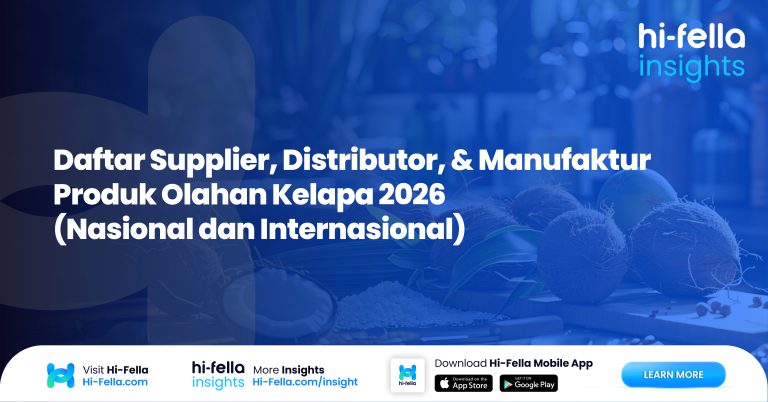In today’s global economy, political factors can drastically impact business success. From recent trade wars to shifting regulations, understanding these influences is more important than ever.
The ongoing conflict between Russia and Ukraine, for instance, has disrupted global supply chains and led to sanctions that are reshaping markets. Alongside the effects of Brexit and the US-China trade tensions, these events force businesses to adapt quickly.
This article explores how political factors affect business, offering insights and strategies to find out these challenges and seize opportunities in uncertain times.
How Political Factors Affect Business

Source: HBS Online
Political factors play a crucial role in business operations, decisions, and market conditions. Whether you’re a business professional, entrepreneur, investor, or student, understanding how politics influence business can help you steer through the global market more effectively.
Introduction to Political Factors in Business
Political factors include government actions, policies, and political stability that impact businesses. These factors can affect the economic environment, consumer confidence, and market trends.
- Government Actions and Policies
Government decisions, such as changes in tax laws, trade tariffs, and labor regulations, can directly impact business operations.
Example: The introduction of new tariffs during the US-China trade war increased costs for companies importing goods from China, forcing many to adjust their supply chains. - Political Stability
A stable political environment offers consistent policies, which are crucial for long-term business planning. Instability, on the other hand, can create uncertainty and disrupt business operations.
Example: The political instability in Venezuela has caused many businesses to pull out or significantly reduce operations due to unpredictable government actions and economic turmoil.
- Economic Impact
Political factors influence the broader economy, which in turn affects business profitability and growth opportunities.
Example: Brexit caused significant economic shifts, leading many businesses in the UK and EU to reassess their operations, relocate, or change their business strategies to adapt to new economic realities.
- Consumer Confidence
Political changes can affect consumer sentiment, either boosting or reducing their willingness to spend money, which directly impacts business revenues.
Example: The uncertainty surrounding the US presidential elections often leads to a dip in consumer confidence, as people tend to hold off on major purchases until the political situation stabilizes.
- Market Trends
Political factors can drive changes in market conditions, creating new opportunities or challenges for businesses.
Example: Environmental regulations introduced by the European Union have spurred growth in the renewable energy sector, creating new market opportunities for businesses focused on sustainability.
- Importance in International Trade
For businesses engaged in international markets, understanding political factors is crucial for managing risks and making informed decisions.
Example: Companies exporting goods to Russia faced significant challenges due to sanctions imposed by various governments in response to the Russia-Ukraine conflict, leading them to seek alternative markets.
Types of Political Factors Impacting Business

Source: Marketing Tutor
Some political factors can affect businesses in different ways. Understanding how political factors affect business is crucial to facing challenges and seizing opportunities. Here are some of the key factors:
1. Government Policies and Regulations
Government policies, such as tax laws, trade tariffs, and labor laws, directly affect how businesses operate and their profitability.
For example, changes in tax laws can either increase or decrease a company’s costs. A new trade tariff might make imported goods more expensive, affecting businesses that rely on these products.
According to the World Bank, 40% of businesses consider government regulations a major factor in their decision to enter a new market.
2. Trade Agreements and Political Relations
Trade agreements between countries can open up new markets and reduce costs for businesses. Good political relationships can lead to favorable trade terms, while trade disputes or sanctions can disrupt supply chains and limit access to markets.
Case Study: The North American Free Trade Agreement (NAFTA) significantly boosted trade between the US, Canada, and Mexico by reducing tariffs, which helped businesses in these countries expand their markets.
4. Political Risk and Business Strategy
Political risk involves the chance that political changes will negatively affect business operations. This includes risks like expropriation (government taking over private assets), changes in tax policies, or civil unrest. Businesses must assess these risks when entering new markets or making significant investments.
The Global Risk Report 2023 by the World Economic Forum indicates that political instability is one of the top risks faced by businesses globally.
Case Studies of Political Impact on Business
Real-world examples help illustrate how political factors affect business and influence their operations and strategies. Here are a few cases:
1. The Impact of Brexit on European Businesses
Brexit, the UK’s exit from the European Union, has had significant effects on businesses in Europe. Companies faced new trade barriers, changes in regulations, and uncertainty in the market.
For instance, many businesses had to relocate their operations or adjust their supply chains to continue trading smoothly post-Brexit.
A survey by the British Chambers of Commerce revealed that over 80% of businesses reported changes in their trading patterns due to Brexit.
2. US-China Trade War and Its Global Impact
The trade war between the US and China led to the imposition of tariffs on goods traded between the two countries. This increased costs for companies involved in cross-border trade, forcing many to find alternative markets or suppliers.
Case Study: Apple had to navigate increased tariffs on its products manufactured in China, leading to higher prices for consumers and prompting the company to consider diversifying its manufacturing locations.
3. Venezuela’s Political Crisis and Oil Businesses
Venezuela’s political instability and economic crisis have severely impacted its oil industry. Many international oil companies have reduced their investments in Venezuela due to the unpredictable political climate and the risk of expropriation.
In 2022, major oil companies cut their investments in Venezuela by 50% due to ongoing political and economic uncertainties.
Strategies for Businesses to Navigate Political Factors
Understanding how political factors affect business is essential for developing effective strategies. Businesses can use various approaches to manage political risks and take advantage of opportunities:
1. Diversification of Markets
By expanding into multiple markets, businesses can reduce their dependence on any single country. This spreads political risk and minimizes the impact of political changes in one region.
2. Building Strong Relationships with Governments
Maintaining good relationships with government officials can help businesses stay informed about policy changes and influence regulations. Engaging in regular dialogue and participating in industry associations are effective ways to build these relationships.
3. Political Risk Assessment and Management
Conducting thorough assessments of political risks before entering new markets is essential. Businesses should develop contingency plans and consider political risk insurance to protect against potential losses.
A report by Deloitte shows that 70% of businesses incorporate political risk assessments into their strategic planning process.
How Political Factors Shape Business Growth
Understanding how political factors affect business is essential for thriving in today’s global market. By staying informed, assessing risks, and adopting strategic approaches, businesses can navigate political challenges and seize opportunities for growth.
Ready to explore new markets? Join Hi-Fella, the leading export-import platform, and excel in the global trade landscape!








